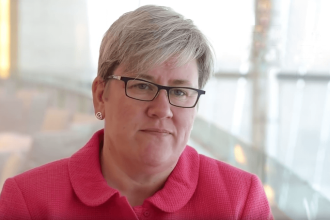By Charles Njeru
Kenya, with only 20% of arable croplands has lost up to 26 tons of soil per hectare annually due to soil erosion, according to a report by the Heinrich Boell Foundation (hbf) who unveiled the Soil Atlas – Kenya Edition, a publication that presents critical facts and figures about soil, a vital resource that impacts food and nutritional security.
According to recent findings, over 40% of East Africa’s soils are degraded, threatening agriculture, food security, and livelihoods. Furthermore, soil salinization affects 40% of irrigated land, jeopardizing food production and sustainability.
“Soil is the foundation of life, yet it remains one of the most overlooked and undervalued resources. Its health influences the food we eat, the water we drink, and the air we breathe. Protecting soil is not just an agricultural concern, it is essential for sustaining ecosystems, food security, and climate resilience, particularly in Africa,” said Joachim Paul, Director, Heinrich Boell Foundation.
Soil degradation in Kenya is undermining agricultural productivity and rural livelihoods, exacerbating food insecurity, and increasing social inequalities.
The overuse of synthetic fertilizers, monoculture farming, and deforestation has led to declining soil fertility, erosion, and desertification, with 63% of arable land affected by acidity, 80% of soils suffering from phosphorus deficiency, and 75% of Kenya’s soils experiencing depleted organic carbon levels, reducing soil fertility and microbial activity.
Over-reliance on fertilizers alone is not the solution to Kenya’s soil health crisis. Studies suggest that increased fertilizer use does not always result in better agricultural yields. The 2024 African Soil Health and Fertilizer Summit acknowledged the need for holistic solutions, yet industrial players continue to push for increased fertilizer use. Policies must support sustainable farming practices like agroecology to restore soil fertility.
“Agroecology offers a sustainable path forward by integrating biodiversity, soil management, and organic inputs such as organic fertilizer and biopesticides. Studies show that agroecological farming can improve yields by up to 30% while reducing dependence on costly synthetic fertilizers. Investing in these practices will not only restore soil fertility but also build resilience against climate change,” said Dr. Harun Warui, Lead Programme Coordinator, Agroecology and Food Rights at Heinrich Boell Foundation.
Sustainable soil management will not only protect the soil but also enhance the nutritional value of the food we consume. Declining soil health directly affects food nutrition. Over-reliance on industrial fortification ignores the root cause-nutrient-deficient soils. A shift toward organic inputs, sustainable soil practices, and dietary diversity is crucial for long-term nutrition security.
“Healthy soils lead to nutrient-dense crops, which in turn support human health and reduce reliance on external fortification. While we acknowledge the government’s commitment to food fortification through mandatory large-scale fortification (MLSF) policies, we must address the root cause—nutrient-deficient soils. Sustainable soil restoration practices, including organic inputs and diverse cropping systems, are essential for long-term nutrition security, particularly for vulnerable groups such as pregnant women and lactating mothers,” remarked Christine Gatwiri, Project Coordinator, Route to Food Initiative and co-author of The Missing Link: Soil Health and Nutrition Crisis.
Kenyan farmers are adopting alternative soil restoration methods like biofertilizers, composting, and agroforestry to improve soil health and productivity.
However, agrochemical corporations profit from fertilizers and pesticide sales continue to influencing policies that block sustainable agricultural reforms.
In Kenya, 44% of pesticides used are banned in the European Union due to environmental and health risks emphasizing the need for stronger regulations to protect farmers and consumers from harmful practices and scale up solutions that require stronger policy and financial support to reduce dependency on synthetic inputs.
“Soil is not an infinite resource, it is a living, breathing system that requires care, investment, and respect,” emphasized Sylvia Kuria, an organic farmer from Ndeiya and co-editor of the Soil Atlas. “We must move beyond seeing soil as just dirt beneath our feet. Protecting and restoring soil health is vital for ensuring food security, protecting biodiversity, and addressing climate change.”




